Episode 8
Under Pressure
S03 - Episode 8
July 12, 2025
45 mins & 58 secs
Speakers
Chris McLaughlin
Soren Peterson
Sophie Jüksa Robinson
Bennett Mahaland
About
What happens when we let teens speak for themselves? In this candid and eye-opening episode, Soren and Chris hand the mic to two remarkable young adults—Sophie and Bennet—both just one year out of high school and still close enough to remember the whirlwind of academic pressure, social expectations, and performance demands that come with being a teen today. As high-performing students themselves, Sophie and Bennet offer an unfiltered, deeply insightful look into the mental and emotional toll that achievement culture can take on teens. Together, they reflect on their high school experiences with the kind of clarity that only time and distance can provide. Tune in to hear how they navigated pressure, what they wish the adults in their lives had known, and what they hope parents and educators will take away to better support the teens they love. This episode is a must-listen for anyone who wants to understand what it really feels like to grow up in a performance-driven world—and how to show up differently for the teens who are living it now.
Tune in and be inspired to show up, speak out, and stay grounded.
https://www.youtube.com/@InspiredInsightsPodcast
inspiredinsights@inspiredcg.com
*Please note that this episode contains sensitive behavioral health topics such as suicide and substance use. If you are experiencing a behavioral health crisis, please contact the 988 Suicide & Crisis Lifeline by calling 988 or visiting www.988lifeline.org.
**This podcast is for information and entertainment purposes only and should not be considered health advice. This podcast is not intended to replace professional medical advice.
Transcript
The Inspired Insights podcast is for informational and entertainment purposes only and should not be considered health advice. This podcast is not intended to replace professional medical advice.
Please note that this podcast may contain discussions on sensitive topics such as mental illness, suicide and substance use. If you are experiencing a behavior health crisis or need support, please contact the 988-SUICIDE-AND-CRISIS-LIFELINE by calling 988 or visiting www.988-LIFELINE.ORG.
Soren:
Welcome back to the Inspired Insights podcast, one of our final episodes of season three.
Chris:
I know, I can’t even with that.
Soren:
Well, today we are joined by two lovely guests, former colleagues of mine in high school. If you’d be good to introduce yourselves.
Sophie:
Oh, me first. All right. Hi, my name is Sophie Yerxa-Robinson.
I was a graduate in 2024, so last year, so I’ve gone through a semester of college now at Temple University. In my time at Hamden, I did a lot of things with Bennett and Soren. I was in the drama club, I was the president of Triumph and NHS, and I did a lot of other little things and I was valedictorian my last year too.
Chris:
Just a few small things.
Sophie:
Just a nice few little things, but yeah.
Chris:
It’s so nice to have you here.
Sophie:
Yeah, thank you.
Bennet:
My name is Bennett Mulholland. Anthony is my middle name. I’m 19, also graduated with Sophie.
I did a lot in high school, I guess like theater. I played a lot of sports. I played tennis, basketball, was also in Triumph, I was also in NHS.
Basically all the things that Sophie did, just a little less.
Sophie:
Well, you did sports and I didn’t do any sports.
Bennet:
So yeah, it fills in the hole. I just finished my first year at Southern Maine Community College and I’m transferring to USM next year for musical theater. So cool.
Chris:
Thanks for having me. Nice to have you here. For sure, for sure.
Welcome both of you. Thank you.
Soren:
Awesome sauce. Well, it’s time to go around with our inspired insights on the theme of school and me having just graduated unofficially, graduating this Sunday. I would like to share and elaborate a little bit about my senior quote, which is a quote from Ovid, omnia montantor, nihil interet, which is everything changes, nothing dies.
Oh, I love that. Yeah. And I think in regards to my academic pursuit, what I found that quote to mean to me is that my sort of lust for learning and knowledge and my zeal around education will always be changing.
And the way I pursue education will always be changing as I’m no longer going to be a high school setting and moving to a college setting. However, my passion for learning shall never die. Yeah.
Bennet:
Bennett, if you could share. Yeah. Sophie, if you’d like to share.
Sophie:
Okay, I can share. I guess I’ll share my big thing, which has been joy, which when I was in middle school, I had a teacher. I really struggled with anxiety for a really long time and like really heavy burnout.
And I had this one teacher and she pulled me aside and she’s like, Sophie, you have to choose joy. And ever since then, that’s been my big driving factor through all of my time and why I chose to go into the arts and why I’m, you know, taking that route of no job security and choosing an academic field that is constantly changing.
Chris:
Yeah. Yeah. We talk about joy almost every episode.
Near constantly. Near constantly. It is a repeating theme.
And I want to make sure we get some time to come back.
Sophie:
Sure.
Chris:
Yeah. To add insight too. For sure.
Do you need more time, Bennett?
Bennet:
Oh, no, no. I’m ready.]
I was ready. Oh, yeah. Yeah.
I don’t know. My whole life, I was just kind of brought up on like working hard kind of and like trying to do the best you can while also doing the most that you can in a healthy way. So kind of like with what Sophie said about prioritizing joy, I think that’s a really good thing to just like keep in mind because it’s good to work hard and it’s good to push yourself and to experience new things.
But it’s also important to draw it back a little bit if you understand that that’s taking a mental or physical toll on you or your body.
Chris:
Yeah.
Bennet:
Rest.
Yeah. Rest for sure.
Chris:
Wise words for both of you as first year college students, too.
I love that. My inspired insight is a quote and I did not memorize it. I am not an onstage kind of guy.
So I will post the quote. But it is meaningful for me around Pride Month, which is this is one of many episodes we’ve shot during Pride, and it’s the 10 year anniversary of an activist in South Carolina who ripped down the Confederate flag from that state chambers and sort of thinking about that idea of good trouble. And she was quoted in saying that this piece around we are living in trying times.
These are challenging times and these are times that require courage and bravery. And when we’re stuck in those moments of trying to get our feet moving forward and act in courageous ways, she presses pause and thinks backwards about the people who sacrificed for her to be here and do the things that she’s doing. And that gives her the opportunity to think forward about who might follow in her steps.
And so acting bravely feels like an urgent necessity for her. It gives thanks to those who came first. And it’s thinking about the future generations that our acts of bravery today might be that which gives inspiration to the folks of tomorrow.
So that was something that stuck with me as well. Yeah.
Soren:
So, on this lovely episode, as now I’ve completed high school, along with these two lovely fellas.
Chris:
Let me just press pause on that for a second. You are done high school.
Soren:
It’s true.
Chris:
Have you processed that yet? To be honest, okay.
Soren:
So like emotionally, I’ve kind of felt nothing in regards to high school ending for me. I don’t know if I’ve really like not processed it or I just kind of felt nothing. I simply am apathetic towards my high school experience.
I think like I’m really pleased with my high school experience. I was thinking the other day, what do I regret not doing? And frankly, I think I did everything that I was interested in and at the same time, managed to pull it all off with like a relatively high degree of success.
Yeah. Well, at the same time, putting in as minimal effort as necessary.
Chris:
Right. Right.
Soren:
So, I don’t know. I’m sad that I’ll not be able to do JCL or whoop anybody in Kurt Homan anymore. Yeah.
Bennet:
It’s okay. You can come back and watch.
Soren:
I want to introduce it to Glasgow, actually.
Bennet:
That would be really nice to see.
Soren:
But mainly, it’s a sensation of sort of like empty hopefulness. Like I don’t really care about high school.
I care about my future.
Chris:
Yeah. You’ve said things along those lines before. So, does it feel like this whole graduation, like literal Poppin’ Circumstance is much ado about nothing?
Soren:
I think that the social utility of the Poppin’ Circumstance is to incentivize students to finish high school for like social clout reasons.
Chris:
Yeah. Right. Well, you literally march.
Marching practice is at the elementary school, right? Sort of inspirational.
Soren:
Yeah. Yeah. And that in particular, I think serves as sort of a propaganda piece for completing standardized education.
Chris:
The propaganda of graduation.
Sophie:
That being it is. Yeah. Especially me.
Like I was, well, I transferred from another town to Hamden. So, going through that whole process, it meant something completely different to me because I didn’t know any of these people and I was kind of going through their tradition. It was like very much like systematic of this is how we do things.
So, this is how you’re going to graduate.
Chris:
Did it feel, I’m fascinated by this and we’ll get to the topic. Did it feel sort of like this non-issue for both of you at this time last year as well? Oh yeah.
Sophie:
Yeah. I was so ready.
Chris:
As much that you all did, like every sport you played, every production you were part of, it still was just like, there was no sense of rite of passage.
Bennet:
So, basically since sophomore year, it was just like, go, go, go, go, go all the time. By the time I got to the end of my senior year, I was kind of burned out. I was ready.
I was ready to leave. But it took like a month or two for me to realize that I did actually kind of miss going back to school. And I’ve said multiple times that if I had the chance to go through high school again, just like without homework, I definitely would.
Because my friends. I definitely would. But you have to think about the friends that you made, the relationships created.
Like half of the memories that I can think of in my life come from high school. And that’s probably just because of the amount that I did in high school. See, I miss experiencing those things for the first time.
Chris:
Well, and respectfully, it might also be a function of age and experience. You’ve been out for a year and then you had four years of some solid memories and activities to reflect on. There are probably, and I’m spitballing a bit, maybe five.
There are five wake-ups that I remember that stick with me now in my 50th year. Bleh. One of those wake-ups is the day after the project graduation.
And just that sensation of never again. All done. And it was as much a sense of accomplishment, not because of the activities of the groups I was in.
It was survival. Did it. Did it.
10 out of 10. Have to recommend it. But it’s really great.
Sophie:
Yeah, that was very much my experience too. I got to that end and I was ready. It’s done.
And you feel like you survived and you feel like you’re ready to actually do your own life. You’re not living the life that other people have wanted you to live.
Bennet:
For you, right.
Sophie:
Yeah, because I never got to do my music and my acting during the school day. I mean, I went to chorus, but I never did my voice lessons during the day or go to classes that really were about what I wanted to do.
Chris:
Yeah, because everything was after school, evenings, weekends. Same with sports.
Bennet:
Yes, yeah.
Sophie:
Which that’s been my big thing this year was having this whole big realization of like, I’m doing what I want. It was a hobby in school now. So I actually have hobby time again and I have a life now that I don’t have to sacrifice for what I want to do and what I want to do.
Chris:
Yeah, that’s an interesting perspective. Okay, thanks for that. Thanks for entering that with me.
Soren:
Actually, in regards to the sensation of like loss one experiences after they leave high school, I think all of us at this table have like a much brighter future past high school than our high school career, even though we’ve managed to achieve some quite illustrious things and accumulate some accolades from high school. And I think that the individuals like I’ve noticed a lot of, for example, jocular boys and like sort of this posse of girls at my school become extremely passionate about like the sort of like traditions around leaving high school. And they seem to be mourning it a lot more.
And I think that that is potentially indicative of them having peaked in high school.
Bennet:
Oh, I knew you were going to say that. Did you tense up like I just tensed up?
I knew that’s what you were going to say. Yeah, we were talking about this before we even started the episode. It’s yeah.
Sophie:
And unfortunately, you can tell.
Chris:
Yeah. And I get that, you know, one of the taglines for this podcast is, you know, the our best days are still ahead. And so that’s just it’s truly a mantra that I believe.
And even 30. Yeah, 30 something years ago when I graduated high school, I graduated with some of those folks, too, who we you know, we knew they knew whether it was spoken or not. They were never going to leave.
They were going to go work in the same place, factory, industry, taking over that family legacy. And and due to other influences like socioeconomic and just straight out poverty, like they weren’t they had no other options. And so that’s what I reflect on now.
It reminds me of that Napoleon Dynamite character with throwing the football over the moon.
Sophie:
Anytime I think peaked in high school, that is.
Chris:
Yeah, yeah, yeah. So I get that that morning, to use your word, like looks maybe different based on the experience of not only what you’ve done backwards retrospectively, but what you’re planning forward. And if you’re not planning for much.
These are probably the days that you’ll miss the most, right? Yeah, 100 percent.
Sophie:
No, yeah, that was definitely I that was what I always hated that idea of being stuck here and like getting out and that being my time to be free. And what they’re telling me is like the whole time going through high school, they’re like, this is the last time you’ll be a minor. This is the last time you’ll be like free to do everything.
And I have to worry about adult things. And it’s like, well, I kind of want to worry about adult things. Not all the time, but like I get to actually have an opinion about it and make my own way.
Chris:
And well, this is exactly why Sorin invited both you to be part of this conversation is thinking about other colleagues of Sorin that like Sorin are regardless of effort. I just want to caveat that regardless of effort, high achieving, driven, motivated, lots of interests, lots of hobbies and skills. And with that comes a lot of pressure, whether it’s internalized or placed upon you.
And so this was, I think, a really this was a conversation you and I even started talking about in season two about this idea of of what is success look and feel like for a young person. And there’s so much stereotype and stigma about kids these days. And the three of you at this table represent both kids these days and really passionate, driven, high achieving young people.
And then what comes with that? You know, then you think about at what cost?
Sophie:
Yeah. If I were to go back, I’ve been thinking about this a lot this year, especially in like doing all my new classes and everything. If I went back to high school, I would not have strived so much to be valedictorian.
And I probably wouldn’t have because I was valedictorian in middle school, in a very, very small middle school. And so you were very much like climbing a ladder. And once you were at the top, you had to like hold your position down.
And it was like you sacrifice everything for your academic external achievements. You have to your worth and your success is what external accolades you receive.
Chris:
Did you know at some point in your high school career, did you consciously say, I have a goal and my goal is to be graduating top of my class?
Sophie:
Yeah, I think it was right when I got there. It was something that I was like, I’m new to this environment. And I really want to, you know, I was like, at first I thought it was I had to be.
It was for a long time, it was very negative. And it was really not until I actually achieved it that I was like, I wanted to do that. But I sacrificed so much for that, that I don’t think I would have done it again.
And if I had to go back to high school, first of all, I would not be happy. Second of all, I think I would have tried a lot less and I would have passed my classes minimum and done what I wanted more.
Bennet:
I agree. I would do the same thing.
Chris:
Yeah. Even with sports?
Bennet:
Sports? Yeah, probably, actually. I was thinking in my head, I was like, no, I’d probably still work as hard.
But if I had to go back, like we’re talking about, I probably wouldn’t try as hard. Like in tennis, I tried so hard every single match in tennis and I’d get really down on myself if I’d like lose a match or like even lose a game and there’s a lot of games in a match of tennis. So it was really easy for me to get down on myself when I was in high school, like with my sports.
So I feel like if I went back with the knowledge I have now, I probably wouldn’t try as hard because I would know that that would maybe bring a negative experience onto me again.
Soren:
Yeah. Do you guys feel that the pressure that was propelling you guys to achieve so highly, it was internally or externally derived?
And like more specifically, where do you think it was coming from?
Bennet:
Deb, for me? Go ahead.
For me, definitely internally. Um, obviously my parents, my friends wanted me to succeed and like thrive, but never to the point that I had like in my own head. So like we started the episode off, I started talking about like working hard and like pushing myself.
I did that in like a very unhealthy way in high school and like going to college and living by myself and like having my own freedom really showed me that I did that negatively. And it did take a toll on me in high school. So yeah.
Sophie:
Yeah, no, definitely. I think so too. I think the more widely known, because especially near the end when everyone was like, oh, you’re top of your class.
Oh, you’re close to being top of your class. And I was getting all these achievements and everything. I definitely felt like it was, it was not like you have to be this way, but it was like this social expectation of being there.
And like you are that. And if I’m not that, oh, it’s just like, okay. You know, it’s like kind of that social disappointment for you, like the pity if you’re not there, which I’ve never, ever been able to take socially.
Chris:
And what I’m hearing both of you say, I think is a hundred percent or close to a hundred percent of that pressure and drive was you both internally. You didn’t have people like back to your room, keep practicing, keep studying. Don’t come out until you’ve put in six hours.
Sophie:
My mom said, please get a B.
Bennet:
Mom told me to sleep. She was like, Bennett, go to sleep. And I’m like, but I have to do my homework.
I have to study my lines. I have to do this and this and this.
Sophie:
It was a lot. And like, that was really what the breaking point was for me. Like my whole, my parents honestly were worried about how much I was putting in.
And they’re like, you need to stop. And that’s where the whole idea of joy came in and trying to connect me with that teacher because I was just, I could not get past it. And now being in a place, I see how detrimental that is because you set those habits in and then your whole life, you’re thinking that’s how you get your validation.
Chris:
And has it changed the way you’ve approached now secondary education, like the way you’re approaching classes or extracurriculars? One hundred percent. Yeah, at least.
Yeah.
Sophie:
Before, if I got anything under like a 96, I’d be in my teacher’s office being like, how can I help improve this? How can I improve? And now I got like a 70 on one of my science tests.
I’m not a scientist. And I was like, fine, that’s okay. And I still had all A’s for that semester because it’s one part of the greater whole, which I never was able to grasp.
Chris:
So here’s the crow I’m about to eat. For the past year and a half-ish, I have criticized and taunted my co-host over there. Because daily, there’s conversations about as minimal effort.
I’ll catch up, you know, I’ll pull it together for the last month and a half. And Sorin does it every time. And what I’m hearing you both say is maybe Sorin’s onto something.
Maybe Sorin had something figured out that week because I was a high achieving, nowhere near. I was top 10, not maybe 10%, not number one. But grades and extracurriculars and all of that stuff was very important to me.
And nobody was saying, you better, you need to. It was 100% self-derived. And the kids like Sorin drove me bonkers because I was like nose to grind to try to memorize, to try to perform.
And Sorin will waltz in, crack open the book for literally the first time and ace it.
Sophie:
If it is something that I’ve realized over this year is that you, like doing a lot of Alexander technique is actually something that I’ve learned a lot this year. And it’s about finding the flow state and being as minimal as possible, but executing the highest you can be physically. But I think it goes a lot towards mental stuff too.
And like preparing for performance. And it really is about going back to your absolute like base level. And I think it serves for academics too, because like I was that person who’s nose to the grind every day.
And I honestly did worse when I prepared like that. And so, because you’re not, you’re tiring yourself out before you can even get there. And like the system that is built around education and what is expected for you and what academics is, is not an accurate representation of what a regular person can perform.
Because you’re expected to have 100%. You’re expected to know everything, or that’s what you think you’re expected to know. But it’s, you actually have to think.
And the people that are highly intelligent enough to push past that and just walk in, I mean, like my greatest tests, yeah. But half the time I was also just trying to fit into that system.
Chris:
I owe Sorin an apology.
Soren:
I’d like to actually touch on the dynamic between intrinsic and extrinsic motivation. You guys are extremely high achievers because you’re intrinsically motivated to do so, and you push yourself for that. I think I am, frankly, severely lacking in any amount of intrinsic motivation.
If I had no external pressure coming from my mother, or like, hard stoppy there, my mother, period. Or like my desire to succeed amongst my classmates, frankly, I would do zero homework and I’d flunk out of school. Except at the same time, I really enjoy school, like I like learning.
So school was something that was extremely rewarding for me to show up to every day. But I think that is almost equivalently to my detriment as being extremely motivated intrinsically, right? And actually, something that I’ve noticed in my classes is sort of like a competition for nonchalance.
At least among the…
Chris:
That cohort you’re a cohort of.
Soren:
In particular, my cousin and one of his really good friends.
And also, I see it in myself as well. We are all relatively intelligent, I would say, and sort of an indicator of our intelligence to each other is how little effort we can put in while also performing at a baseline, right? I have often found myself bragging about not studying at all for APs and then getting fines on all of them.
Chris:
Do you talk about it? Is it something out loud you will say, how little did you… And I’m paraphrasing.
Soren:
Oftentimes, as a humble brag, people and I, myself included, in this will say, oh yeah, I didn’t study for that. Yeah. Or like, oh yeah, I haven’t done any work.
Sophie:
I would be like, there were times and be like, yeah, I didn’t study that much. And then I was up for it.
Chris:
Yeah.
Sophie:
I’d be home at like three and then study until like…
Chris:
Just to like fit in with that vibe of…
Sophie:
Right, because I also like, it was that vibe of like, when I did try hard and was openly try hard, it was the thing, you’re a try hard. That becomes a negative thing.
Chris:
Yeah. Really? Yeah.
This is fascinating to me. So there’s this, among the high achieving high schoolers, there’s this sort of subset of those who can try the least, but succeed the most. There’s like a badge of honor around that.
Soren:
Yes. I think that lends the most clout because then it’s like, oh, naturally I tell you this. I need not put an effort to succeed.
I’m superior to you.
Chris:
Right. So maybe like, again, thinking of sports and music. So that might be the singer who’s just has perfect pitch and doesn’t need to run the vocal Olympics kind of stuff, or the tennis player who naturally hits 105 mile per hour serve and doesn’t need to like be out there hour after hour.
It’s the natural ability or natural intelligence.
Soren:
Yeah.
Sophie:
Which… Oh, go ahead.
Soren:
And I think too, like intelligence serves you, but so does hard work. And is, I think, the most potent combination when you have them together. Right.
Chris:
I’m going to remind you that you said that at some point in the near future, that it does take both.
Soren:
I can scrape along putting in no effort. I can. Yeah.
Is that fantastic for me? And does that result in the result that I would want? Probably not.
Chris:
Well, probably my guess, having not been to the colleges that you explored and are going to, my guess is what passed at the high school level may not pass at the collegiate level.
Soren:
Right.
Chris:
And so maybe that’s where that balance comes in. I’m thinking that you both are talking about is recognizing that, okay, my parents can’t email my teacher anymore and get the assignment sent directly to my parent to then hold over my head at home. And so scraping by at the college level may be a bit more of a roll of the dice.
Sophie:
Yeah, definitely that was the biggest thing that I got from being so self-internally motivated. And I was always my own advocate, was that then I got to college and that’s what everyone expected already. So I could fall back on that original habitual structure of how I pre-academics, but take off a lot of the effort and still perform.
Honestly, I think I’ve understood material more when I’m trying less. I think my performance has been better since that.
Chris:
Interesting. So that pressure to try, as we’re talking about it, the memorization, the cramming, the note-taking, the flashcards, that actually detracts from the actual learning and internalizing the… You’ve been onto something, my friend.
Soren:
Yeah. Well, I think academics is not an emotional pursuit.
Sophie:
It is so clinical.
Soren:
Yeah. As I’ve said, I think in many an episode, the more we allow our emotions to dominate our mind, the less our logical faculties are able to dictate our decisions and thoughts. Which has led to my cold, detached outlook on life.
But at the same time, I think it’s important, especially in competitive environments in which we’re vying for both social attention and personal success, that we leave our emotions out of it. Because although our emotions provide motivators, they can also be to our detriment.
Sophie:
Even in a lot of the acting training that I’ve done this year in the music training, it’s all about getting very clinical and very emotionally detached before you bring the emotions back in. Because you’re supposed to have a mechanism that will work and that will present something to the audience that will then elicit an emotional response from them. But you yourself should not be sacrificing emotions at your own…
Because you leave a part of your soul on with whatever production or whatever you’re doing, right? If you don’t take care of yourself and set the clinical system first.
Chris:
Yeah. Well, what I keep… The word in my brain that keeps flashing like a neon sign is balance.
Like what I hear all three of you talking about is a need for balance. That a balance of motivations, a balance of joy plus the clinical aspects dissecting your craft in a way that you didn’t get to do in your high school career. And you kind of exploring what balance looks like for just rest, right?
And not driving your body to a state of exhaustion night after night after night. Right.
Soren:
To quote our former Latin teacher, quoting Epicurus, moderatio in omnibus, which means moderation in all things. Yeah. Who translated that one?
Oh, yeah.
Chris:
What are you reflecting at all about? Like, are you thinking about what happens? Like what switches in the fall when you’re in another country?
Sophie:
Yeah.
Chris:
Like what does balance look like for you going forward?
Or maybe you don’t know yet.
Soren:
I think I have never been an individual who embraces balance. Yes.
I am extreme to the utmost in all things. Yeah. I either fully do something or I don’t do it at all.
Chris:
Well, and add to that in episode five, when we were talking about our Myers-Briggs, you talked a lot about thriving or being driven by the chaos. The more urgent the deadline times the least amount of preparation you’ve done, you thrive in that environment.
Soren:
It’s true. Um, so I think next year, I am going to likely jump headlong into the social structures of college and the academic pursuits and my interests. But I am not certain that I’ll be able to jump headlong into the labor that those things entail.
Chris:
Add to that, do you have any, I know like anxiousness would not be an emotion that you would typically reflect on, but does it, when you’re like hearing you, as you say those words, I channel your parents and go, like that makes me extremely nervous.
Soren:
Um, you know, I reckon such things are to be worried about by me in three months. Yeah. Yeah.
Sophie:
I wish I had that skill. I mean, oh yeah, I have a, I have a lease next year or for the next fall and I’m already worried about it. I’m like, okay, am I going to leave the stove on?
Like, I can’t even imagine going to another country. I feel like.
Soren:
I’m curious. I truly feel no emotional burden from having late work. Like it does not weigh on me.
And the burden is-
Chris:
We’re all taking deep breaths over here.
Soren:
Is actually doing it. Um, I wonder both of you, is it more labor intensive to ignore late work or do it for you?
Bennet:
Are we talking about high school or collegiate? I think that’s a really good question. Cause I have two different answers for both of them.
Yeah. In my college, I think it’s honestly less of a, like a strenuous activity to just let it be late. Um, for me personally, I had, you know, coming from high school and like working so hard and, you know, taking rest into account.
I did have a couple of late assignments throughout the year as one would. More in the second semester than the first. But having those late assignments didn’t stress me out and affect me emotionally the way that it did in high school.
And again, I went into SMCC as a criminal justice major and I was there for a week sitting in this dining hall, not dining hall, this lecture hall. And I was like, I don’t want to do this. So I put plans together to transfer to USM for musical theater.
And it’s, I was basically a liberal arts student when I went to SMCC. So I just took a bunch of gen eds. So just a bunch of classes that didn’t matter.
Intro to literature, intro to business, like. But the credits transfer and count. Right, right.
So for me, knowing that I didn’t need to try my utmost hardest on these beginner level classes, I was able to like step back and be a little bit more lenient on late work and be able to put real adult activities that actually matter to me in my life over doing a random assignment that would take me an hour and a half that I’d never think about again. Yeah. But in high school, it’s entirely different for me.
I maybe had like five late assignments my entire high school career. Yeah. Because I was just, I was unable to do that.
I, five.
Soren:
I kind of have the opposite situation. Like knowing where I sit and find one time.
Chris:
Yeah.
Soren:
Yeah.
Chris:
I’m like tweaking over here. Some of it is a lot. And I hate this word I’m going to use, but I can’t think of another one.
Some of it for me feels like consequence, right? What’s the consequence? So in one setting, the consequence might be some finger wagging, an email home, a reduction of a couple points on the paper and a nagging parent who is going to be on your case.
At the college level, the consequence might be a zero. And you’re moved on to the next week of assignments. And as somebody who teaches at four schools currently, I’m very clear with my students at all of those schools what the consequence is for late work.
And if the student is not communicating with me and saying, I know this is due. Can I have an extension? Which I a hundred percent of the time give in the absence of the communication, which is the adult skill we’re trying to model a zero.
And we move on to the next, like I don’t accept the late work. If the number grade, what I have learned about today’s college student, typical college student, the number on the paper doesn’t matter as much about as compared to, did I earn those three credits? Like the GPA aside, did I at least get a 70 blank so that these three credits aren’t wasted?
And if the credit is the goal and the grade, the GPA is not the goal, then that baseline of what performance looks like, if bare bones is here, the C grade might be here. And I am constantly, and I shouldn’t be at this point because I’ve been teaching a long time. It’s, I feel like I have students who week one, absolutely no, have figured out how many blanks they can have in their grade book to still earn the 70 something to get the three credits in the bank.
And that’s exactly what they do. Yep. More energy is spent figuring out the system than actually doing the work.
Sophie:
Which is why I realized like I would never go back and be the valedictorian again, because you’re fighting. It’s not actually about what you’re learning. It’s about beating the system.
Chris:
Right. Right. Right.
Sophie:
It’s that, like when I graduated and then like, even that summer and then when I started college, I was like, I wasted so much time instead of just actually, I mean, of course I learned a lot and I took a lot of information and I really think, you know, earned what I earned and got a lot of knowledge from it. But still like, yeah, you’re also fighting a system and you’re not actually learning as much.
Chris:
Yeah. Yeah. And if the final of the class is worth 50% of the grade, there will be some people who nail that final, grab the three credits, but not need to put in a whole lot of assignments or work in the initial 14 weeks of the semester.
The 15 week is where it all turns on.
Soren:
Actually, something that a former math teacher of mine that had me for two years said to me as I was talking to him for what’s likely the last time ever. Yeah. He said, you were always a good student, but if I were to give you a grade on playing the game, I would give you an F.
Chris:
Oh, interesting. Playing the game. Like playing the game.
What do you think?
Tell me what you think was meant by that.
Soren:
What was meant by that is that like in class, I’m always extremely passionate about the material. I always have quite good comprehension of the material. I always enjoy discussing it with the teacher.
Like I always want to learn more. Outside of class, I don’t want to touch a single thing ever. And I want to go and go for a bike ride.
I want to talk to my friends. Go with life. Yeah, exactly.
I don’t care. Chase joy. And in order to play the game of high school, you need to care disproportionately about the stuff that’s happening outside of the classroom in like, I would say a very significant way, especially like modern day with extracurriculars and their importance to like getting into college.
Like nowadays, I feel like for really high performing students, you in fact are incentivized to put more effort in your pursuits around school than you are into your pursuit of school.
Sophie:
You’re expected to have like 16 hour days.
Chris:
Yeah.
Sophie:
And yeah.
Chris:
Do you feel like that particular teacher who shan’t be named, was that a sort of a backhanded compliment? Or was it because as you were describing that, I was like, it actually sounds like you played the game really frigging smart.
Sophie:
Um, yeah. For yourself.
Soren:
Yeah, I played the game strategically. I my win con was poor, though. I think especially coming from that teacher in particular, it was not an insult in the least.
I was actually it was a point of pride for me. Um, as I think that I can both maintain my sort of rebellion against society at large through my lack of effort into like the pursuits that are expected of me. Well, at the same time, engaging it with said pursuits on a deeper level than others.
Chris:
Yeah.
Soren:
Right. Like I’m not checking the boxes. I’m reading between the lines.
And that makes me kind of like, yeah, I don’t know, sort of like anti-society. Well, at the same time, having a deep understanding of it.
Chris:
And which for me is sort of the goal. Like we talk about what resistance looks like often. And it’s not ever been important to me that a student, whether that’s high school or college, be able to spit back at the rote memory, like the ability to memorize the bones of your hand or the categories of others of fish species or like whatever the thing is.
That’s never been important to me. The ability to engage in the material and demonstrate a deeper understanding than what is written the words on page. That’s always been my goal.
Like critical thinking, the ability to master joy while also engaging in the pursuit of deeper thought. And for some students, that might be best done in the Latin classroom, other students in the music room and other students in the woodshop. It doesn’t matter to me what the setting is.
The ability to engage and demonstrate a passion for learning as if I were teaching more, that would be my absolute goal. And how it’s reflected doesn’t require homework and pop quizzes.
Sophie:
I totally agree. Like I think the compliance to the system and the societal structure was so detrimental to me and has left me with so many mental health things to combat and like to overcome. And yeah, I know when I’m not fighting the system anymore, like it’s always the English classes.
You always have that English teacher that’ll give you like a 48.25 and you’re like, where, how did you give me two fifths of, for 5% of a point? Like that doesn’t make any- And even in college, it’s how it is. And like really stepping back from that, being like, nope, that doesn’t matter.
I got a lot from that material. I presented that, I’m still got a great grade and all my feedback is great. And I feel like I’ve learned something and that’s what is valuable.
Chris:
Yeah, well, what I also hear you all saying is if you had to go back and do it again, the same way it was laid out last time, you’d have to change your strategy because that didn’t work for you. Exhaustion, anxiety, stress, pressure, missing out on moments of joy and social opportunities. If you could go back and redesign your high school career in a way that matched your passion and what is the, to use Soren’s words, what’s the utility of this education, that’s where you would find success and then be able to do it again and do it differently.
Soren:
A hundred percent. Well, wrapping up this episode, thank you guys so much, Sophie and Bennett, for coming out.
Chris:
Yeah, nice to finally meet you both.
Bennet:
Great to meet you as well. Thank you for having us.
Soren:
For our listeners, thank you so much for listening.
We’ll see you next week and have a lovely rest of your day.
Chris:
Thanks for listening all.
The Inspired Insights podcast has been brought to you by Inspired Consulting Group, LLC. Edited and produced by Amanda Seidel and Derek Harter.
Marketing support for The Inspired Insights podcast by Elizabeth Keenan. Music by Derek Harter. Please visit www.inspiredcg.com to learn more. Copyright 2025, all rights reserved.
Show More
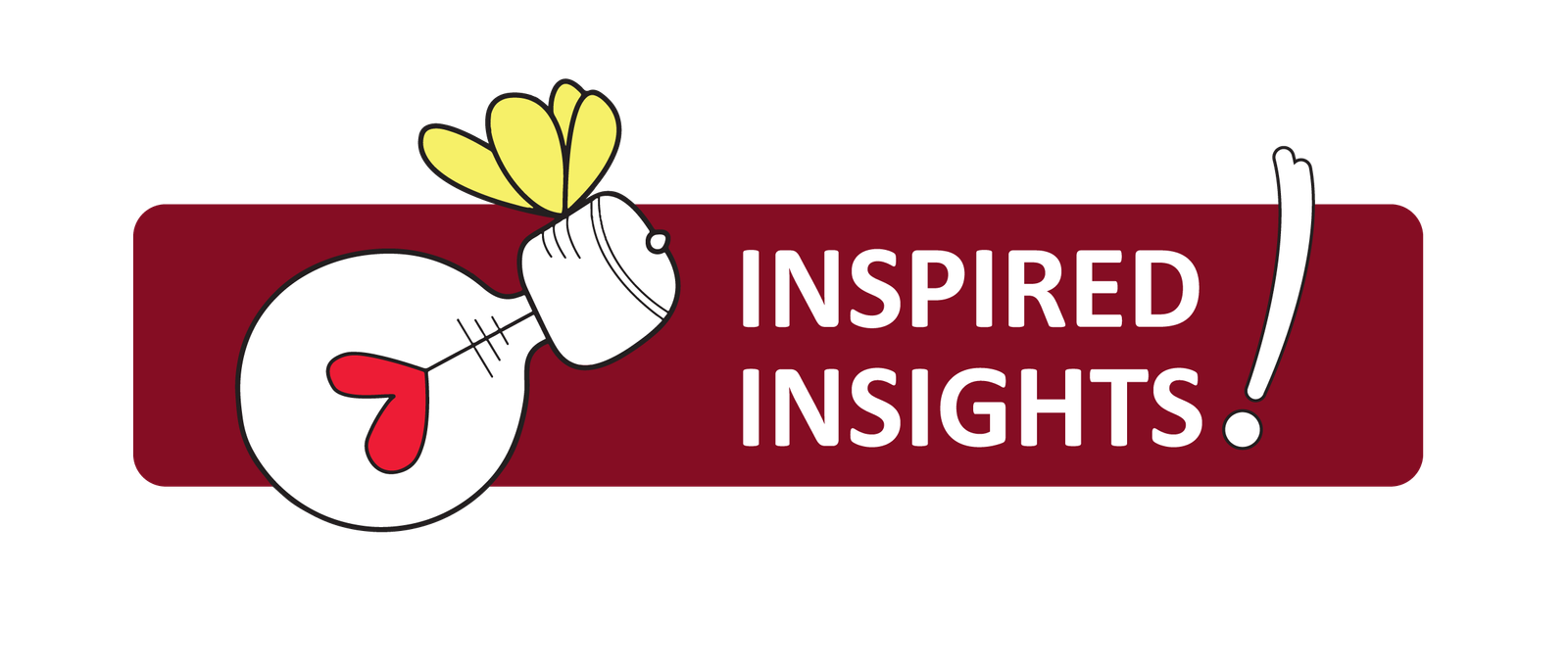
All Episodes
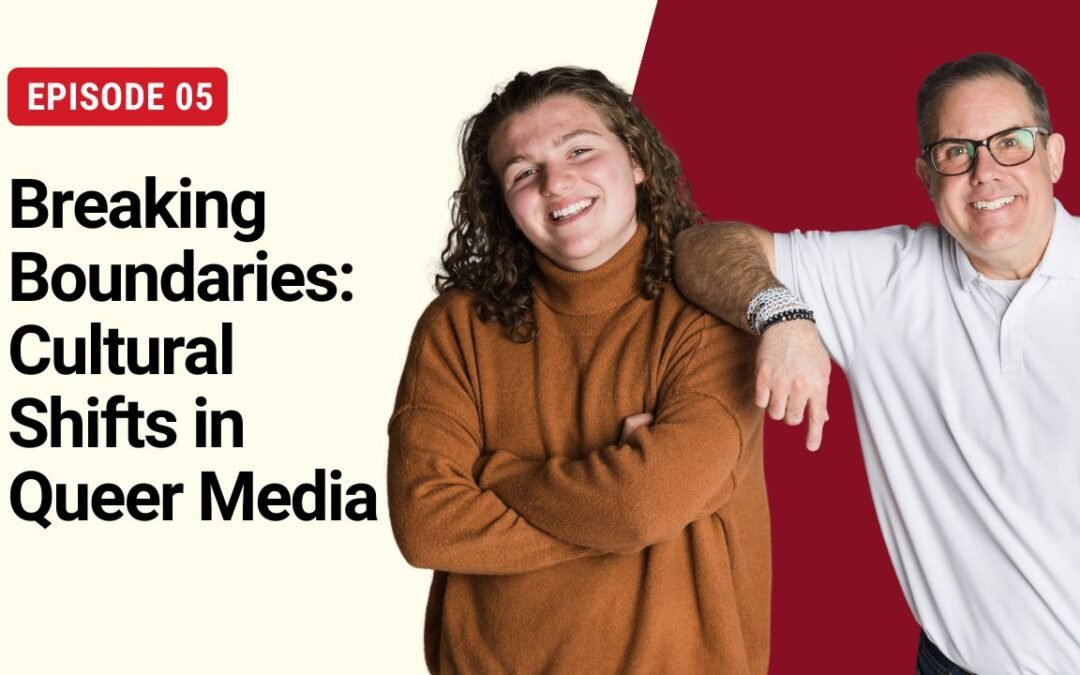
S1E5: Breaking Boundaries: Cultural Shifts in Queer Media
Do we influence the media or does the media influence us? This is just one of the many questions that Chris and Soren try and tackle in today’s episode…
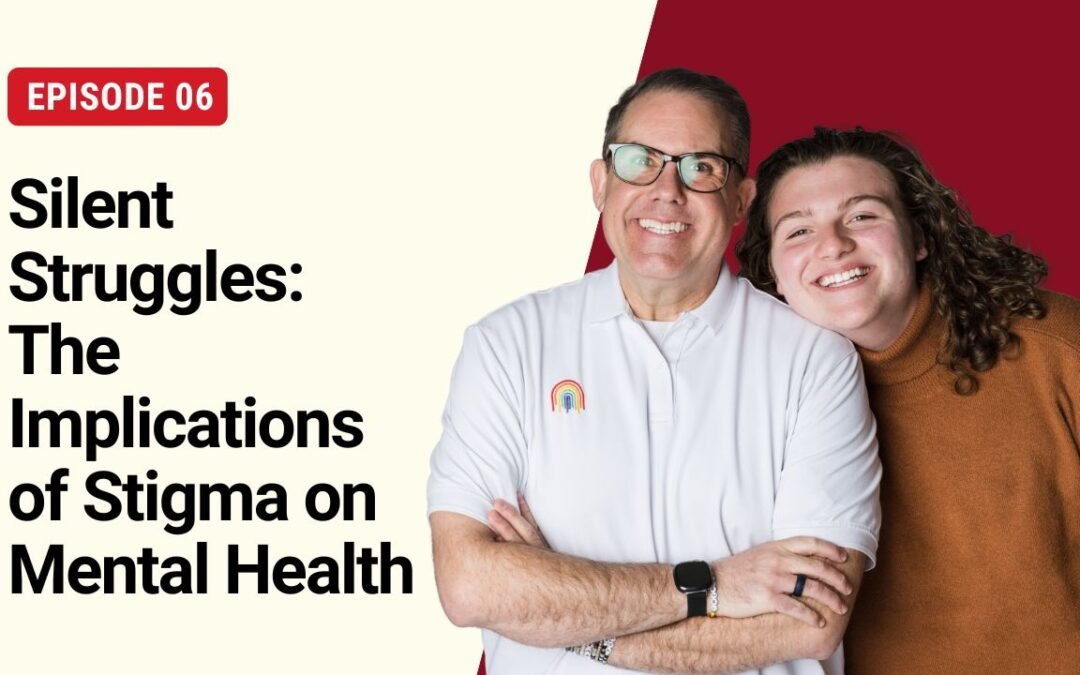
S1E6: Silent Struggles: The Implications of Stigma on Mental Health
In Episode 6, Chris and Soren work to break down the stigma that exists in our world around mental health and wellness…
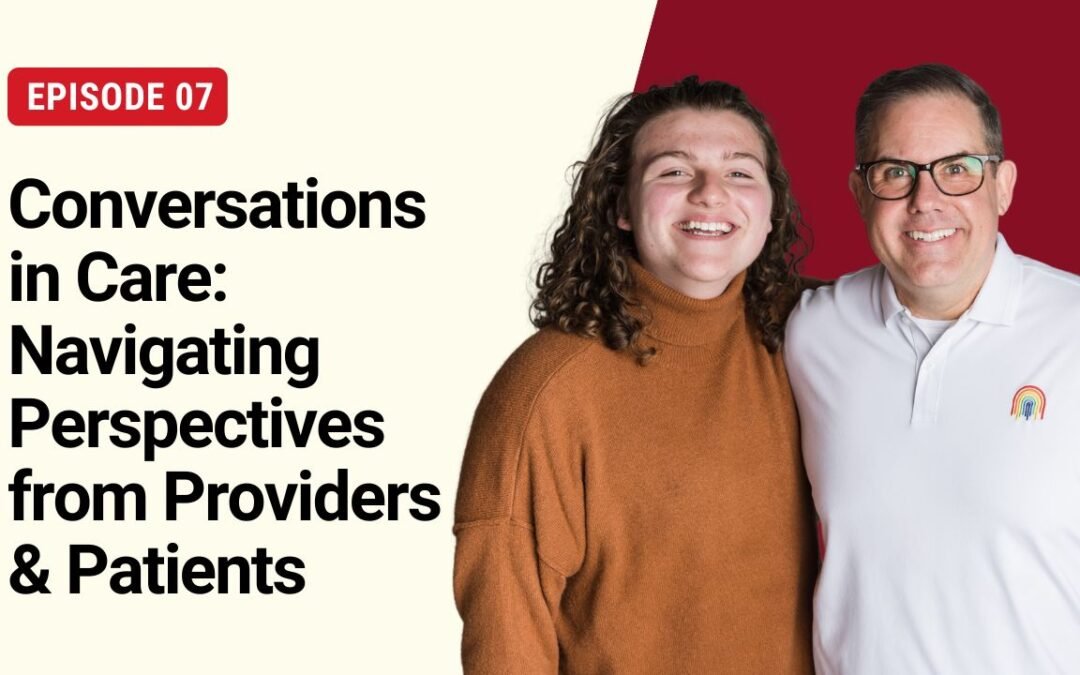
S1E7: Conversations in Care: Navigating Perspectives from Providers & Patients
In today’s groundbreaking episode, listeners will hear Soren’s very personal and powerful experiences as they share their own mental health journey…
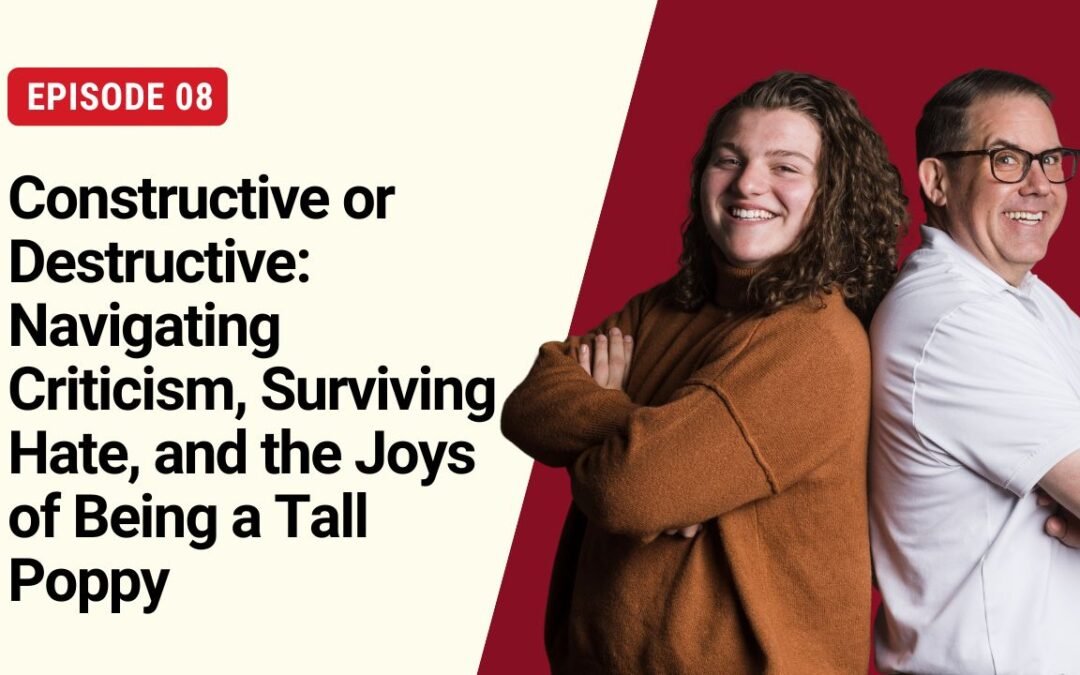
S1E8: Constructive or Destructive: Navigating Criticism, Surviving Hate, and the Joys of Being a Tall Poppy
In this episode, we delve into the complexities of managing feedback, criticism, and hate in the digital age.
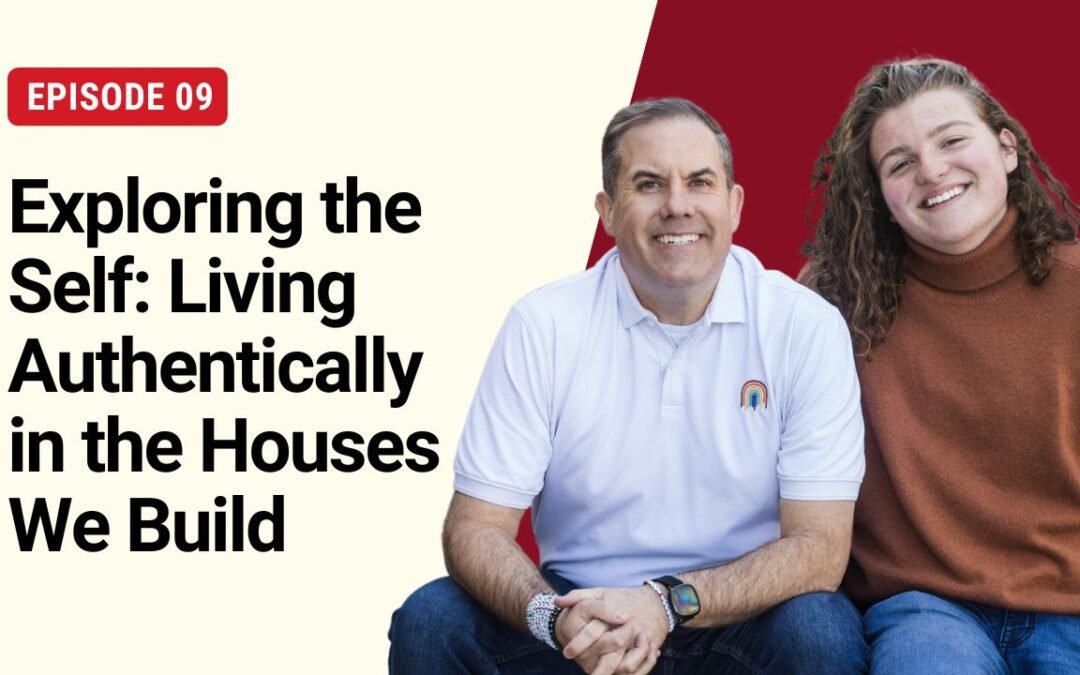
S1E9: Exploring the Self: Living Authentically in the Houses We Build
Going deep! Get a glimpse of Soren’s love for philosophy as Chris and Soren explore growing into and defining a sense of self.
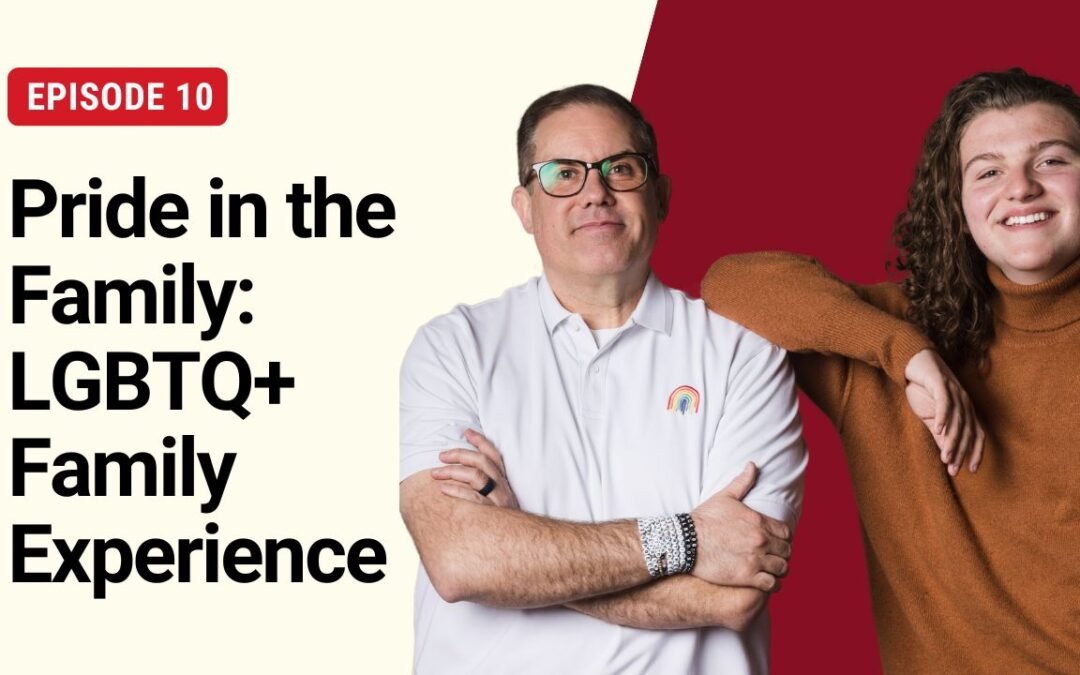
S1E10: Pride in the Family: LGBTQ+ Family Experience
Welcome to the last episode of Season 1 as we explore the unique experiences and challenges faced by parents of LGBTQ+ youth.
